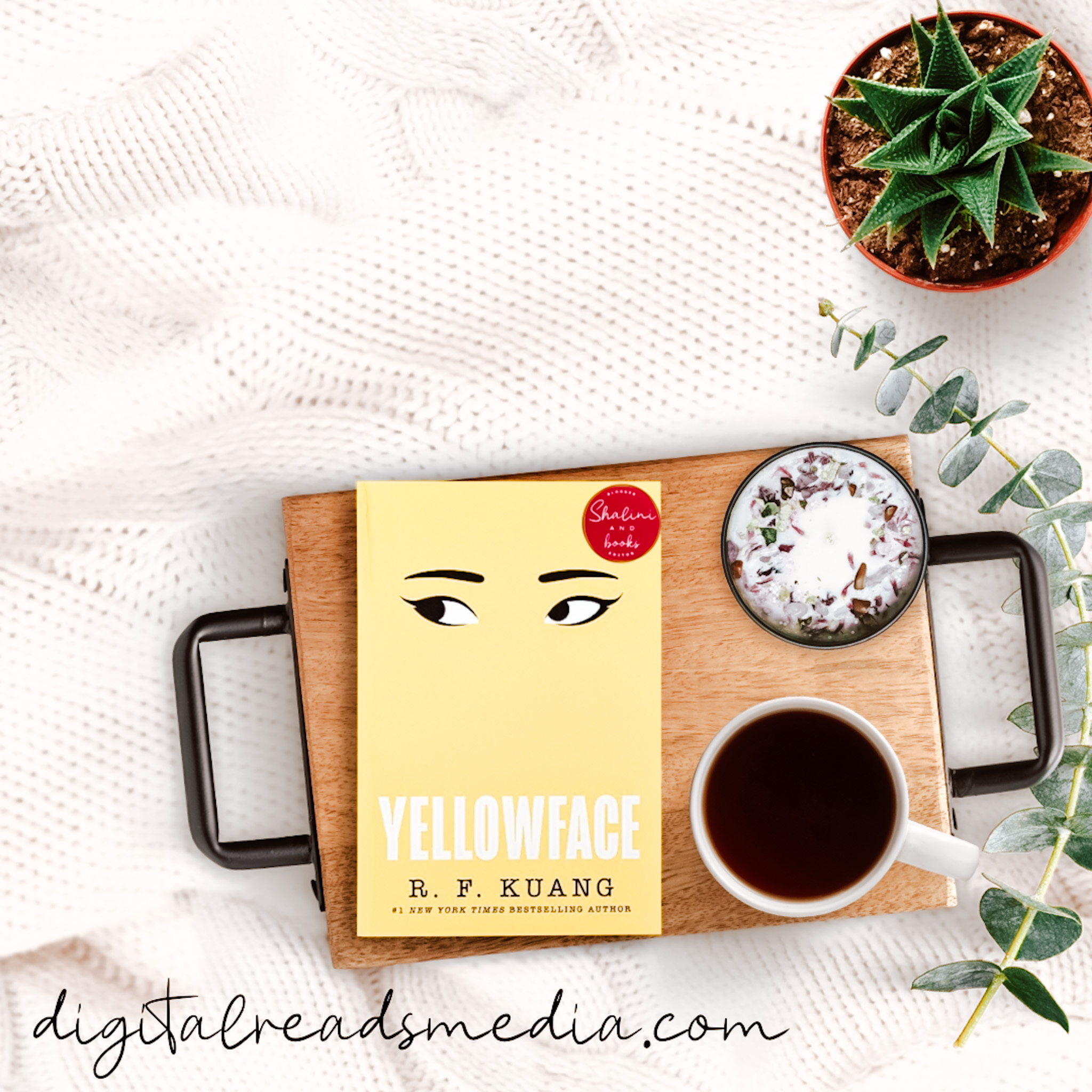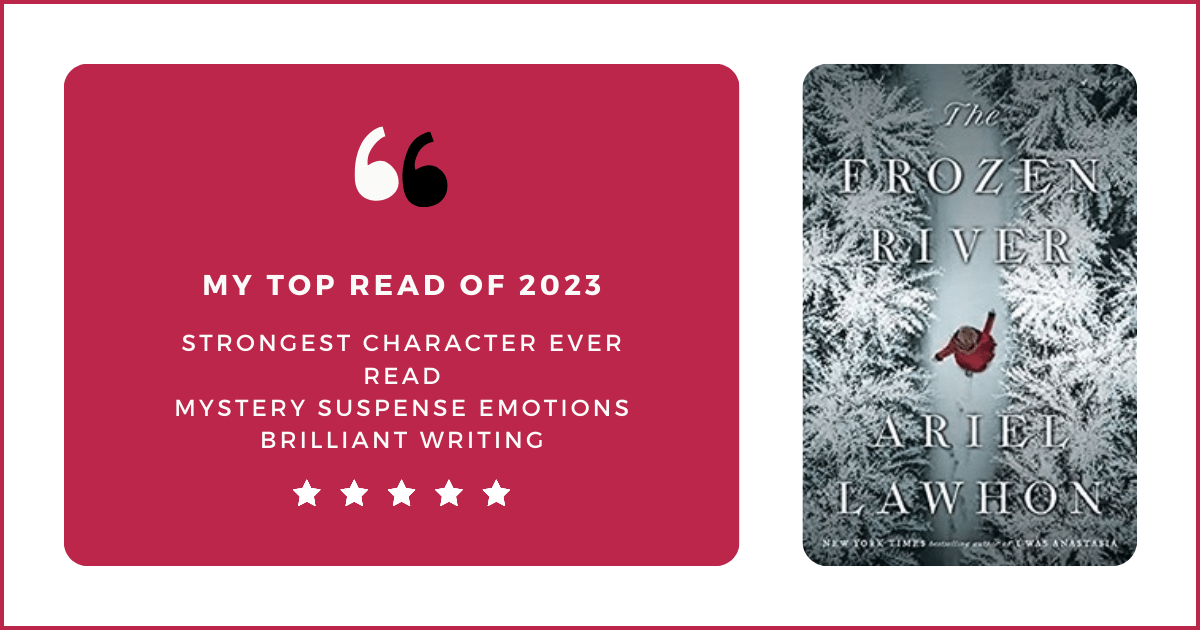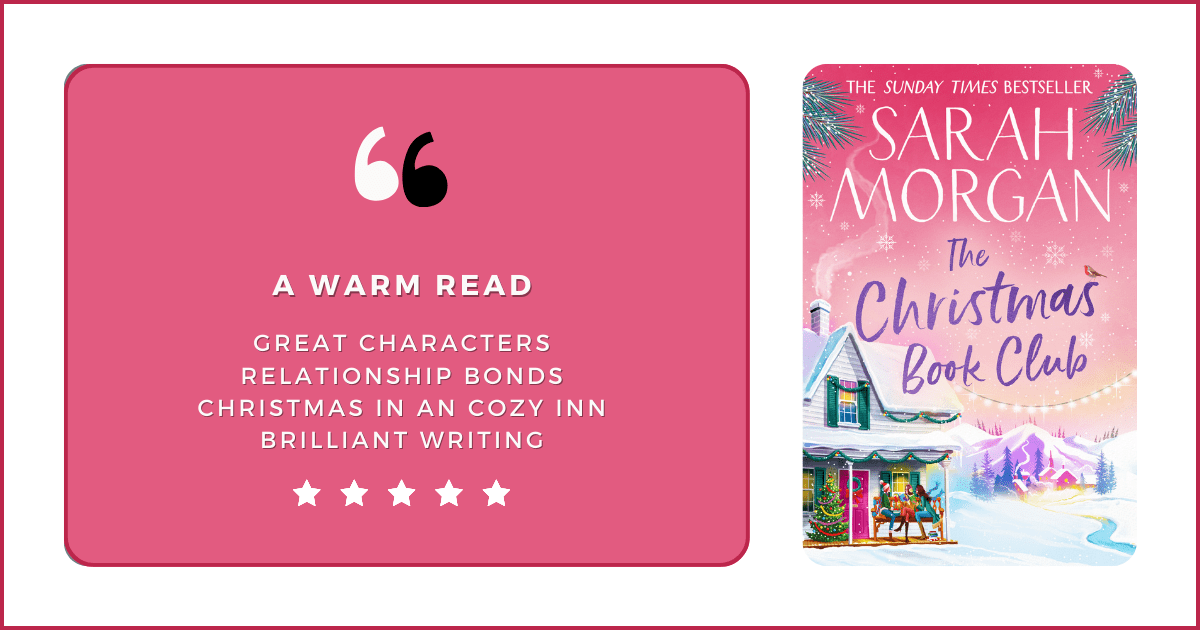Yellowface - the Exclusive Allure of Plagiarism at its high
- Published on
- Shalini
- in Book Posts, Digital Reads Media, Digital Reads Reviews, Fiction
Table of Contents
Yellowface Blurb
In Yellowface, Authors June Hayward and Athena Liu were supposed to be twin rising stars: same year at Yale, same debut year in publishing. But Athena’s a cross-genre literary darling, and June didn’t even get a paperback release. Nobody wants stories about basic white girls, June thinks.
So when June witnesses Athena’s death in a freak accident, she acts on impulse: she steals Athena’s just-finished masterpiece, an experimental novel about the unsung contributions of Chinese laborers to the British and French war efforts during World War I.
What if June edits Athena’s novel and sends it to her agent as her own work? So what if she lets her new publisher rebrand her as Juniper Song–complete with an ambiguously ethnic author photo? Doesn’t this piece of history deserve to be told, whoever the teller? That’s what June claims, and the New York Times bestseller list seems to agree.
But June can’t get away from Athena’s shadow, and emerging evidence threatens to bring June’s (stolen) success down around her. As June races to protect her secret, she discovers exactly how far she will go to keep what she thinks she deserves.
Publication Date: May 2023
Book Links
What was Yellowface all about
Yellowface by Rebecca F. Kuang was cleverly manipulated in its writing to make readers sit up and take notice. There was a level of comfortability in the prose in the initial few pages. Compared to this, there was this ugly cover with the eyes staring cartoony on a thick slab of yellow with no shades. To say the least, not my favorite and caused me to pause this read for days after it got released. And, in addition, the title of the book too didn’t seem to capture my interest. Despite all this, I finally settled down to read the book, having had my friend thrust a copy on me to get my opinion.
It was seen straightaway from the get-go, the prose, though supposedly a satire, was meant to incite and leave the industry Author Kuang herself came from with a feeling of being laid bare. Discomfort was the word I was probably going for. I subsequently wondered if her own publisher Harper Collins felt offended when she went in with the draft. But they must have liked it owing to their dishing out a six/seven-figure advance. Well, to clarify, these were the numbers written in the book about how much money the author character actually received when the book was auctioned.
The Themes
The theme of the book, all in all, heavily concentrated on important topics of plagiarism, white privilege, racism, cutthroat literary world and its politics, cultural prejudice and appropriation, social media wars, Goodreads ratings together with the human nature of greed and craving for success at all costs.
And some of these could be considered as trigger warnings, only if you were an author who, in fact, dissected each rating and cried all over social media if you got a low one. On the whole, I didn’t find anything except for acid-filled words triggering my boredom.
The Story of Yellowface
The first chapter of Yellowface had a white author June, our main character, witnessing the death of a successful Asian American author while being choked on a pancake, then stealing the fully drafted manuscript while the corpse lay in the living room. This book was set to be a thriller with twists, to begin with. At least that was the feel I got in the first few chapters. Then came the reveal of the naked truth of the publishing industry. White supremacy and pervasive racial blindness were particularly the main things to head this million-dollar industry.
The second chapter soon had June justifying her actions of stealing the manuscript along with plagiarizing the lines of the book. She did make the changes with research and modification of lines, but it was in essence Athena’s work. After all, as she said it – it was better than any work she could write.
Then off to the agent went the manuscript along with an auction to get her the best price. The best editor was chosen and after a few edits, the book was ready. Following which came the media campaigns for marketing along with her announcements. And it took a few months, and a few scares of exposure. But June managed it well.
From June Hayward, she became June Song, subsequently using her middle name to sound culturally inclusive and clicked author pics that were shaded and less exposed to bring about the feeling of obscure background. This conniving nature of hers straightaway impressed me. The book was finally launched. And everyone loved it. A star was born. And this book was a bestseller in the opening week, and in all these controversies, the sales managed to rise.
Furthermore...
Then came a few voices on Twitter that slowly gained momentum along with an anonymous account that accused her blatantly. But June managed to squash those, using all her cunningness. I liked her ruthlessness here.
Once the book rested on its laurels and the royalties were coming in, it was time to write book 2. Writer’s block was a true phenomenon, and again it was Athena’s work that came to June’s rescue. Unfortunately, this time, book 2 had Athena’s original lines as the opening paragraph, and people on Twitter got wind of it. Not that the rumors about June had ever stopped buzzing.
The literary jungle the social media was became free for all. Anyone who had a voice used it. June managed to escape on this occasion too, owing to her luck and smooth talks, but tendrils of her were still caught in that fiasco. What’s more, June didn’t have an ounce of remorse throughout all this. Although I was not well versed in R.F. Kuang’s life, it was obvious the author had self-inserted herself in her protagonist. She used all her experiences and insecurities and embedded them in Athena and June.
The Characters of Yellowface
2 main characters and the rest were interchangeable. Even the voices of the editors and publishers were not kept strong or crystal clear. But perhaps that was the concept of the book.
June
June was straight-on biased, with her sharp lines and bitterness toward everyone, especially against her dead friend Athena. Her justification to herself was Athena too did it, milking the racial card wherever she could. So could she, June. She, in fact, tried a bit too hard to convince me she was the better person and that she was justified. Really?
I loved to hate her, specifically when she got on my nerves with her ongoing drama, wherein she lacked a conscience, preying even on an emotional heart like Athena’s mother to get her work done. A toxic relationship she seemed to share with everyone around her. Also, it was seen she seemed to live in her own world, because instead of improving her own writing, she believed she was already the best writer. Yet, down the book, she had to use the crutch of Athen’s lines to make the words flow out of her.
The Typecast of June in Yellowface
Therein lay the problem. June became one-dimensional across the pages and the book fell into its own trap. Throughout the narration, the prose drummed into me one fact. June was unlikable. I got that she was bad without a chance of redemption. But I didn’t need the author, via June herself, telling me this through her sarcastic words almost constantly. The Twitterati told me the same in all the slurs against her. All the nonspecific extra characters too reiterated the same. It felt too personal. Was this what Author Kuang had gone through when she started her career?
Could June really be this bad?
That was when my attention got distracted from its singular focus on the book. It was nice to hate a main character, but to have it forced on me was not what I needed. I wanted to hate her organically through my own conclusions.
Athena
The same was done to Athena in the pages. She came across as pretentious and selfish, lacking empathy. Someone who used people’s pain in her stories, including the words of the arguments with her boyfriend. Unfortunately, by doing this, even Athena became someone who plagiarized not only words but also, emotions and situations, including that of June’s sexual assault to get her story. And this was the typecast both these characters were slotted in the book.
The Intricacies of Yellowface
The book was entirely in June’s POV from the beginning to the end. It started out with good storytelling where I was excited to learn how wicked June could be. The moral dilemma became the self-justification and self-flagellation, and slowly the plot line unraveled when the book was hit by the Twitter storm.
Then the midsection became too chaotic, with the full-on accusations and justifications, almost all on Twitter, that soon ended in a predictable twist and an open-ending.
Another key point was that one facet of June astounded me completely. Was she so stupid, even with a Yale degree? With such a wide net of readers and reviewers who remembered everything, why would a supposedly intelligent author steal the lines not only in the first, but also in the next book, making her plagiarism appear so evident? In any case, she lost all credibility this time with her readers.
Also, the well of her intelligence seemed to dry up when I was told that she read everything and was apparently well versed in the culture she wrote in. But in a panel discussion, she herself had the audacity to make a joke about an Asian last name. Why would an intelligent author do that?
The Setting
The entire setting of the story was from the POV of an author wanting success at any cost to the point of forgetting her ethics. Even the final twist together with her ultimate exposure did nothing to stop her desire for success.
This madness was what was seen in the atmosphere covering the book. Initially exciting, then boring. Did the book have dark humor? I couldn’t see it personally.
The Pace
The book gained momentum in the first few chapters, then slowly unraveled in the tweets almost ad-verbatim, that made me want to DNF. Only my need to know what would finally happen with June kept me reading to the end.
And no, the book never regained its initial swift pace. It became drowned in anger and negativity.
The style of writing - The Prose
From what I have read in The Poppy War, the author’s first book, I found the writing to be very different almost like a thriller. I was overjoyed to have found such a book initially.
Then the book felt to be similar to literary fiction with a dragging pace and repetitive lines, and of course, a stupid main character. In fact, the author stretched plagiarism to the outer limits of believability by making June do it twice. Why would any author antagonize her hotshot publisher and loyal readers, to the point of inviting death threats? Even in the first round, the fire of plagiarism had barely been extinguished
The author’s voice was strong in the prose, even under these circumstances, because most times, I felt that these were the experiences that Kuang had gone through when she started her career. The twitter wars sure felt so, to me.
How it made me feel
It became apparent to me that Kuang wanted June to appear as the villain all the time on all the pages of the book. An untalented author and a self-righteous racist she was with no added nuances to her. That got tiresome pretty quickly. The story soon shifted to social media.
From then on, it became more about Twitter wars and the constant jibes and taunts from everyone who had a computer or phone.
The underlying motivations of the human brain along with the changing diaspora of the friendship between the main characters were never explored. Everything was told to me from the corrosive tone of June. That in turn started grating on me. There was no emotional factor binding the words of this book.
The Mania
The Twitter madness with backlash and death threats and panic attacks made me glad the book was getting over. I didn’t want to know so much of Twitter’s metadata. Reading its data and arguments and tweets was not my idea of a fun read. In reality, I could see it live anytime I opened the app.
A sleight of the hand and a twist occurred which was so easily predictable. And the book was left in the lurch with an open ending. Was that good or bad? You decide. In truth, I was simply glad that the book came to an abrupt end without any resolution. It was too heavy handed. Under these circumstances, I didn’t care much for the book.
The Irony of Yellowface
Harper Collins for Kuang’s book definitely had good PR to actually smile through all the put-downs the book had for them. To clarify, the story had some brilliant moments when it battled with some important topics about race, class, privilege. It started out by being shocking and compelling.
But, in due time, by making the characters unlikable and typecast, one part of me wondered if the publishing industry was really not diversified as they seemed to cast themselves nowadays. And since the book too had the same thing happening, were we readers really bringing in change? Was anyone listening?
Should we read a book that had stupid characters and an industry that promoted white authors primarily, even though an Asian American author wrote this? A question my friend, who had lent me this book, asked me. At this time, I didn’t know the answer.
I read it, and I didn’t find myself being inspired or growing for the better as a result of reading it. In contrast, you might feel the burning fire in you.
The Second Irony
It was certainly ironic that the criticisms that June in the book Yellowface received in its one-star review had nearly the same tone the book itself got on Goodreads. When I first read them, I had to laugh out loud about it. All things considered, was it a coincidence or just life playing us around to show the never-ending cycle it moved in?
To summarize
In conclusion, I could just say I liked June at first. She saw an opportunity and a loophole and took advantage of both. In order to achieve her success, she exploited everything for her own gain. Unapologetically, justifying every action of hers. Be as it may, I liked how the book explored the dark side of the publishing industry and their treatment of authors of diversity.
Harper Collins must undoubtedly have been hopping mad when they saw the mirror in the first draft. But money spoke. And this book made money. As it could be seen, the publishers were undoubtedly happy to throw themselves under the bus. Nevertheless, the lack of subtlety and the constant reference to social media and Goodreads, together with the Google alerts and scrolling about oneself became tiresome. But this was the book of the moment where Twitter reigned high in such threats. Elon Musk must be grinning ear to ear on receiving so much publicity in a bestseller.
In truth, it all started out to be interesting, almost like I had the sole insight to this industry, but then the self-insert about her own experiences in the publishing industry laid down some acid-filled words and made it a cumbersome read. Kuang was too in-the-face in this book, rather than allowing readers to think intelligently and coming to the same conclusion.
Summing up, I was all for the truth to come out, but this was fiction at the end of it. Here, I needed the character to speak her voice, rather than the author.
Do I recommend this book?
This was my experience while reading this book. As a matter of fact, you might have a different one, where your passion and righteousness swayed you in a different direction as compared to mine.
A book that wrote in detail all the tweets and the vitriolic words almost constantly to the point of repetition was not for me. Given that, I’d had a bad experience once when a “passionate” reader tried to lasso me in one such war, asking me to give up my white privileges. Huh. What? Hello, I am an Indian.
What privileges? I was lucky as long as someone didn’t ask me if there were elephants and snake charmers on the road or if I broke into a song and dance Bollywood style for every situation. No. Of course, I didn’t. However you asked this question.
Check out the other books available on Amazon. Get the Kindle Unlimited subscription. You can cancel anytime.
I downloaded the digital version of the book from an online retail, and this is my journey down its pages, straight from the heart. STRICTLY HONEST and UNBIASED.
If you’ve loved the review, buy me a cuppa to perk me up.
Check out my other posts here





3 Responses
I debated reading this book…
Check it out. It has its good points, but it is quite vocal to the point of bashing us on the head about it. Quite unidirectional
👍👍